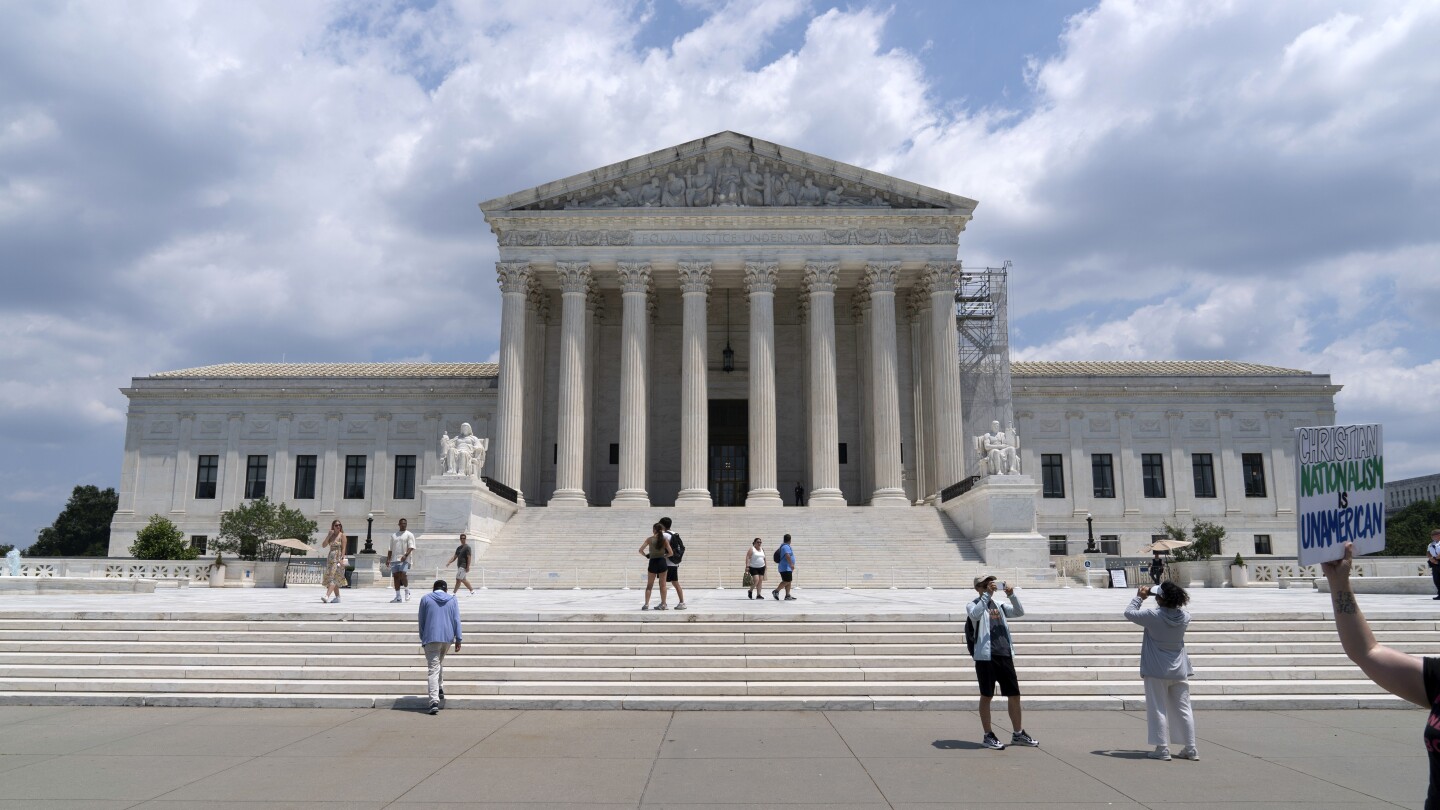The Supreme Court on Thursday upheld a tax on foreign income over a challenge backed by business and anti-regulatory interests, declining their invitation to weigh in on a broader, never-enacted tax on wealth.
The justices, by a 7-2 vote, left in place a provision of a 2017 tax law that is expected to generate $340 billion, mainly from the foreign subsidiaries of domestic corporations that parked money abroad to shield it from U.S. taxes.
The law, passed by a Republican Congress and signed by then-President Donald Trump, includes a provision that applies to companies that are owned by Americans but do their business in foreign countries. It imposes a one-time tax on investors’ shares of profits that have not been passed along to them, to offset other tax benefits.
But the larger significance of the ruling is what it didn’t do. The case attracted outsize attention because some groups allied with the Washington couple who brought the case argued that the challenged provision is similar to a wealth tax, which would apply not to the incomes of the very richest Americans but to their assets, like stock holdings. Such assets now get taxed only when they are sold.
At the same time. This was over a $15,000 tax bill.
To not pay $15,000 they’ll fund a multi million dollar lawsuit all the way to SCOTUS.
I cannot grok people like this
The Moores were backed by anti-regulatory and business groups.
So they weren’t really paying for the case most likely. I’ve also seen some articles mention that the facts of the case as presented to the court may not have been entirely accurate, possible the Moores or their lawyers lied or misrepresented some things in the case. I haven’t been able to find more details on what exactly they’re referencing though.
The dissenting opinion basically ignores how wealthy people make money. Just because you don’t directly receive income from an asset doesn’t mean you aren’t making money. Banks lend money based on your assets. And when you have very large asset holdings, those loans can have very favorable terms.
The majority opinion was also very narrow about the ruling, hinting that they are open to a future challenge about wealth tax in general. That will be the real battle.
Banks lend money based on your assets. And when you have very large asset holdings, those loans can have very favorable terms.
Yes and there’s two problems with this scheme; one is large and the other could be an apocalypse.
The first problem, the large one, is that the wealthy aren’t paying taxes on the money they receive from those loans. This starves the Government of the funding that it needs which causes endlessly escalating deficit spending as the rest of the population cannot provide enough tax revenue to cover everything the Government needs to do.
The apocalyptic problem is that their scheme only works when those assets appreciate in value. If they decline in value, or even just hold steady, it collapses. Right now the wealthy take out another loan, either on a different asset or on the same assets appreciated value, in order to repay the original loan. However if assets decline in value, or even hold steady, they’re unable to keep “flipping” loans like this and they’ll need to come up with the cash to actually repay them. Which means that they’ll have to actually sell some of their assets, as this spreads to more and more of the wealthy the marketplace will enter a value reduction spiral (too many sellers and not enough buyers) and as that happens the Lenders, the banks, will be left holding assets that have increasingly less value. This will quickly lead to an unstoppable chain of Bank failures.
We’re arguably already in the spiral with Commercial Real Estate values continuing to decline and CRE Mortgage default rates are climbing. We’ll likely reach the tipping between late 2024 and mid 2025, then the bank failures will really start to ramp up.
Somewhere in there the stock market will start to deflate as the wealthy seek liquidity to stave off foreclosures. Once it deflates enough it too will collapse.
It’s quite possible that we’re standing on the edge of another “Great Depression” event.





